1 信号量
Q: What’s semaphore?
A: Semaphore is a single primitive for all things related to synchronization, and one can use semaphores as both locks and condition variables. To be specific, a semaphore is an boject with an integer value that we can manipulate with two routines (in POSIX standard, these routines are sem_wait() and sem_post())
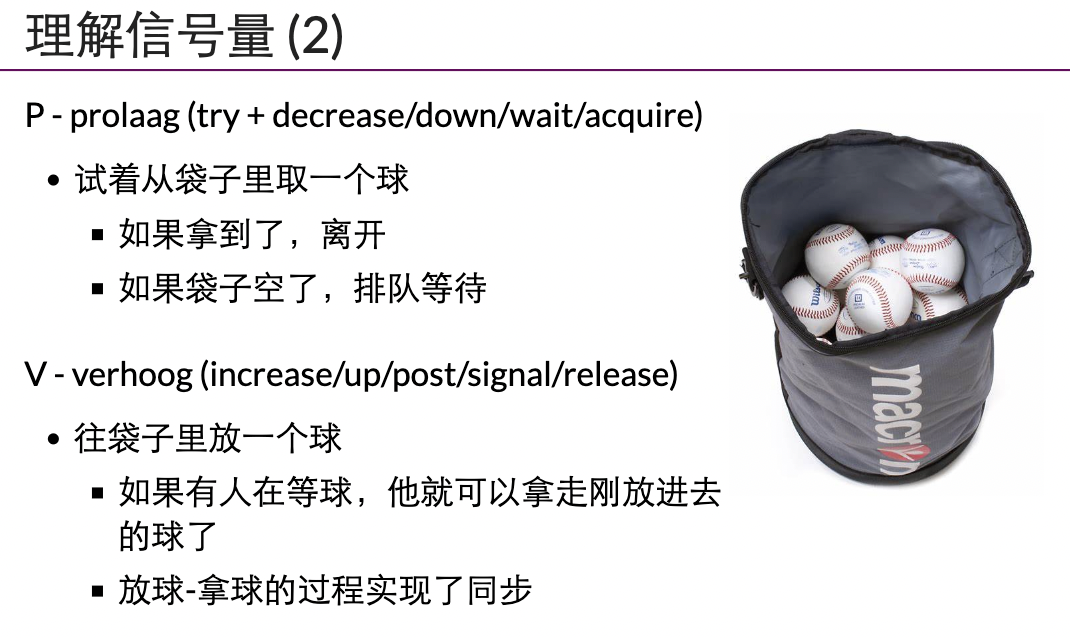
互斥锁是信号量的特例。
Q: How to use semaphore to solve producer-consumer problem?
A:
- Consider what the
unit source(like a ball in the above picture) stands for? - Producer/consumer = put a ball from one bag to another bag.
1
2
3
4
5
6
7
8
9
10
11void producer() {
P(&producer_bag);
print("(");
V(&consumer_bag);
}
void consumer() {
P(&consumer_bag);
print(")");
V(&producer_bag);
}
Q: It seems that we can write elegant codes for synchronization problems with semaphore. But in practice, in which situation we may prefer semaphore to other tools like lock and condition variable.
A: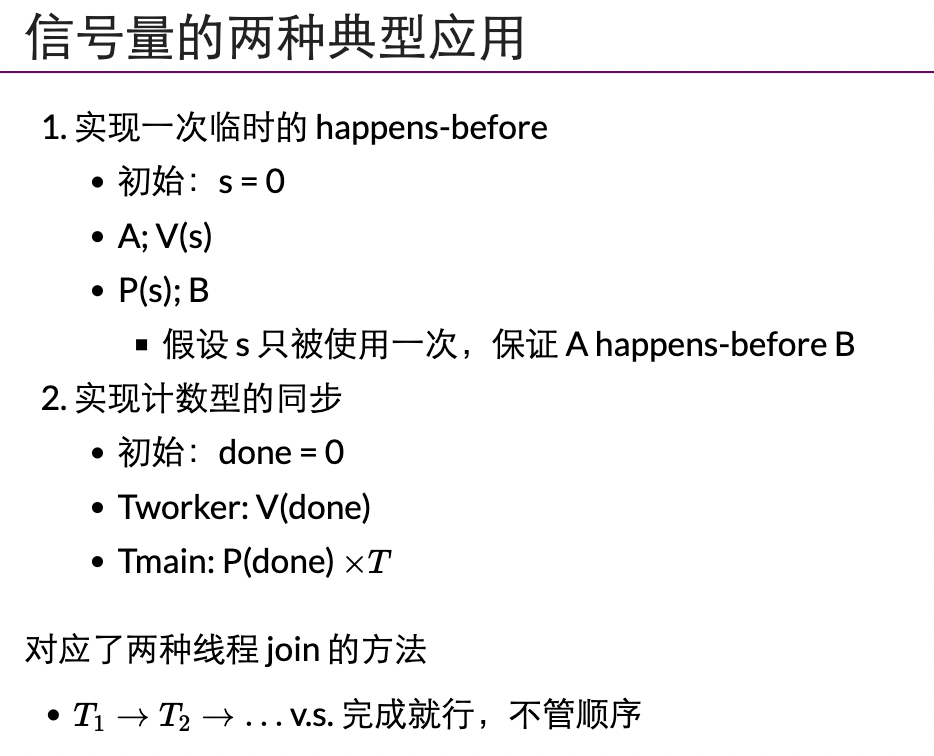
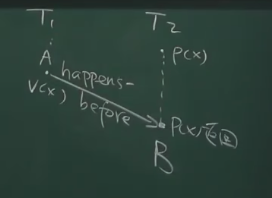
For below picture, we use one semaphore, and order is not considered, but we can get the finished time for each thread.
But for this picture, we use several semaphore, and we can control the order.
TODO: search more infomation.
Q: 理解信号量和条件变量的关系。
A: semaphore可以被视为locks的generalization,但细究起来并不是conditional variable的generalization. condition variable才刻画了同步的本质.
2 哲学家吃饭问题
2.1 问题描述
哲学家吃饭是一个很有代表性的同步问题, 其描述如下: 有5个哲学家围绕一个圆桌吃饭, 每个人左右手边都有一个叉子(如下图所示), 只有同时拿到左右手的叉子时才能进食。请问应该如何设计才能保证每个哲学家都可以正常吃到食物。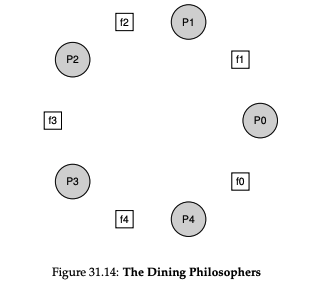
2.2 使用条件变量的解法
遇上任何同步问题,都可以考虑用条件变量去解决,只要能够正确地把条件表达出来。下面这个方法就是用条件变量来处理
1 |
|
但是条件变量会带来一个问题, 它会broadcast,但是线程多的时候会带来性能问题.
2.3 使用信号量的解法
一种简单但是不正确的方法: 将信号量当互斥锁来解决。这种方法会产生死锁(所有人都拿起了左边的叉子时)。
1 | /* get_forks() implementaiton */ |
正确的方法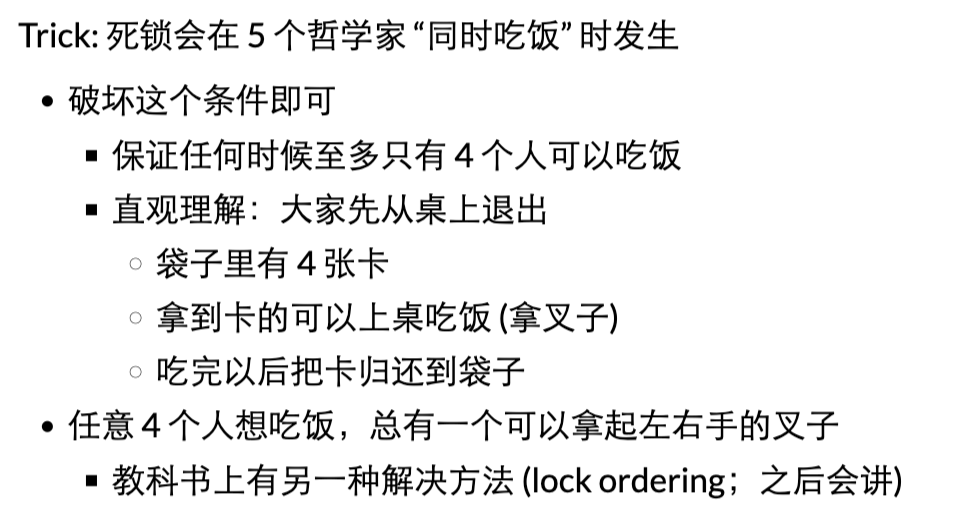
- 方法1: 任何时候保证至多4个人(可以4个人/3个人/2个人/1个人)可以上桌吃饭。(semaphore的初始值)
- 方法2: 让1个人先拿起右边的叉子, 再拿起左边的叉子
2.4 反思
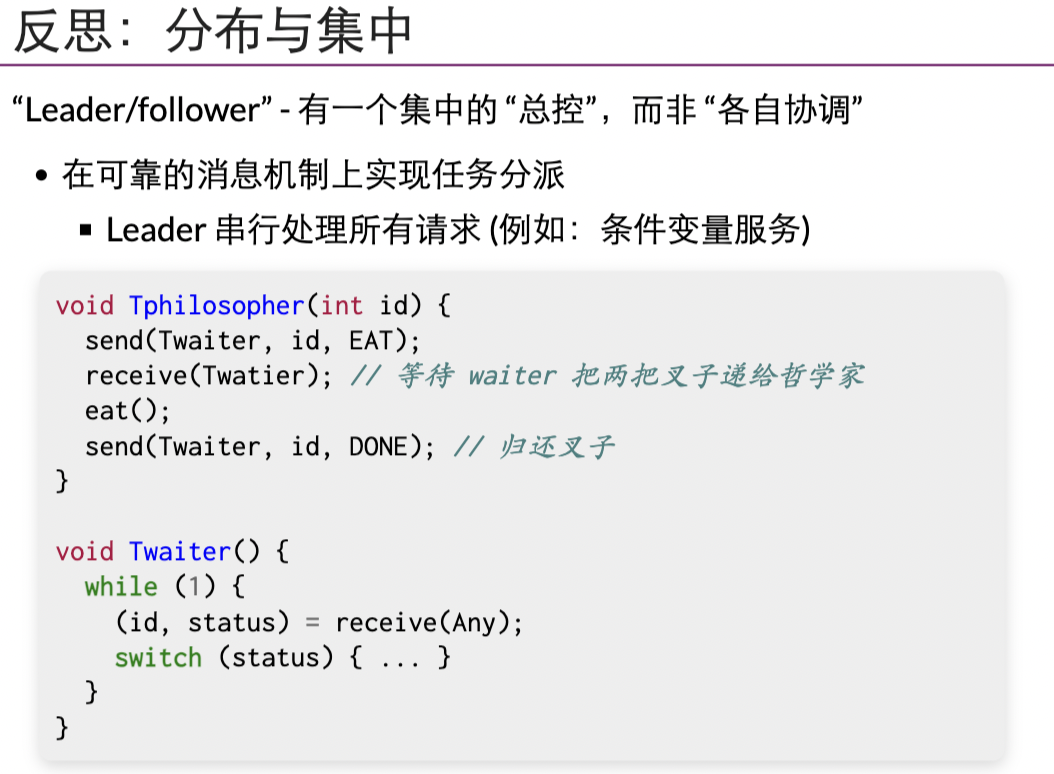
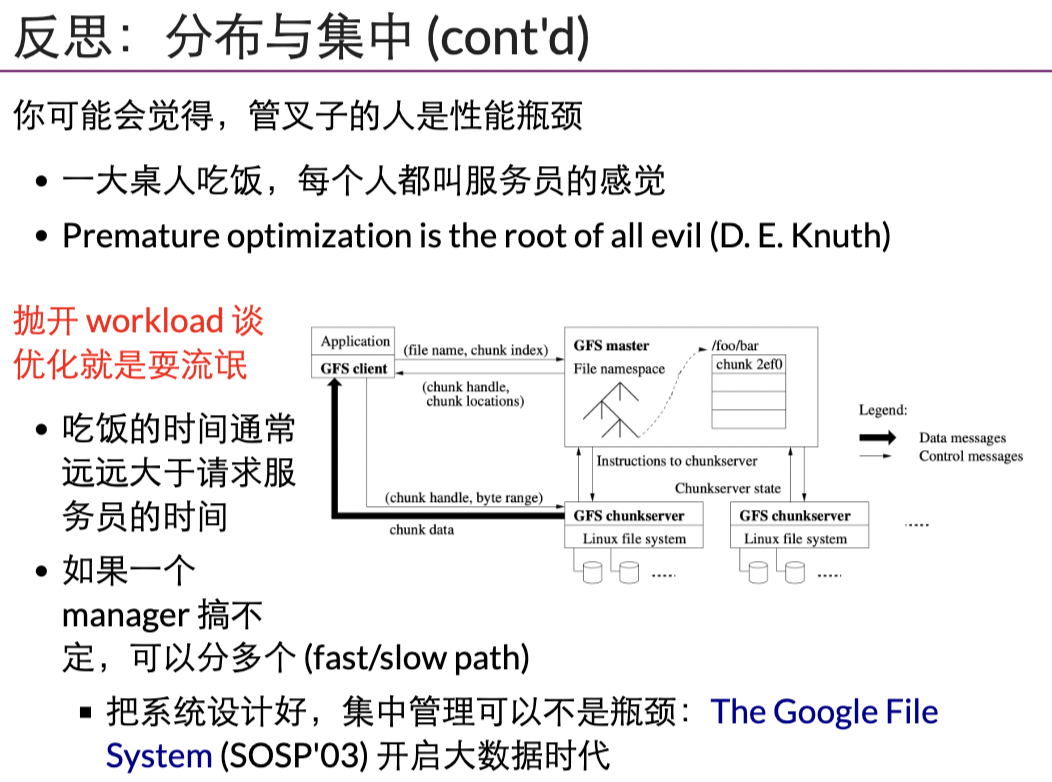
3 参考资料
1 信号量和哲学家吃饭问题
2 《OS: Three easy pieces》Chapter 31
Comments